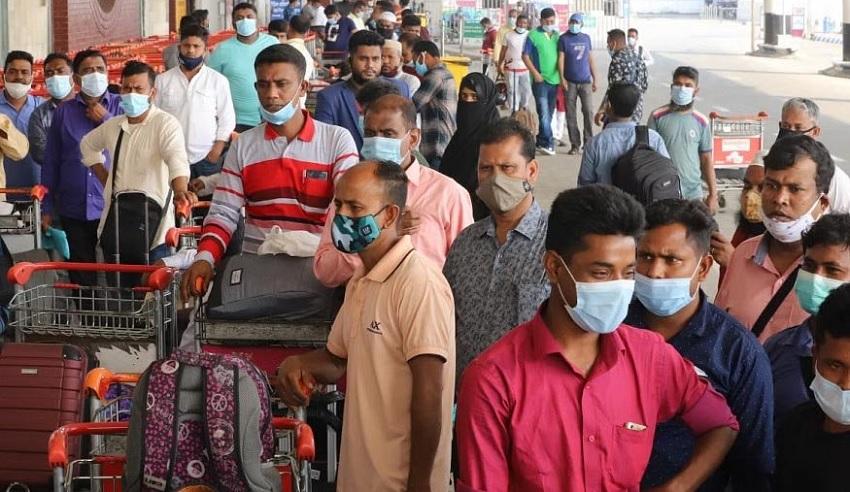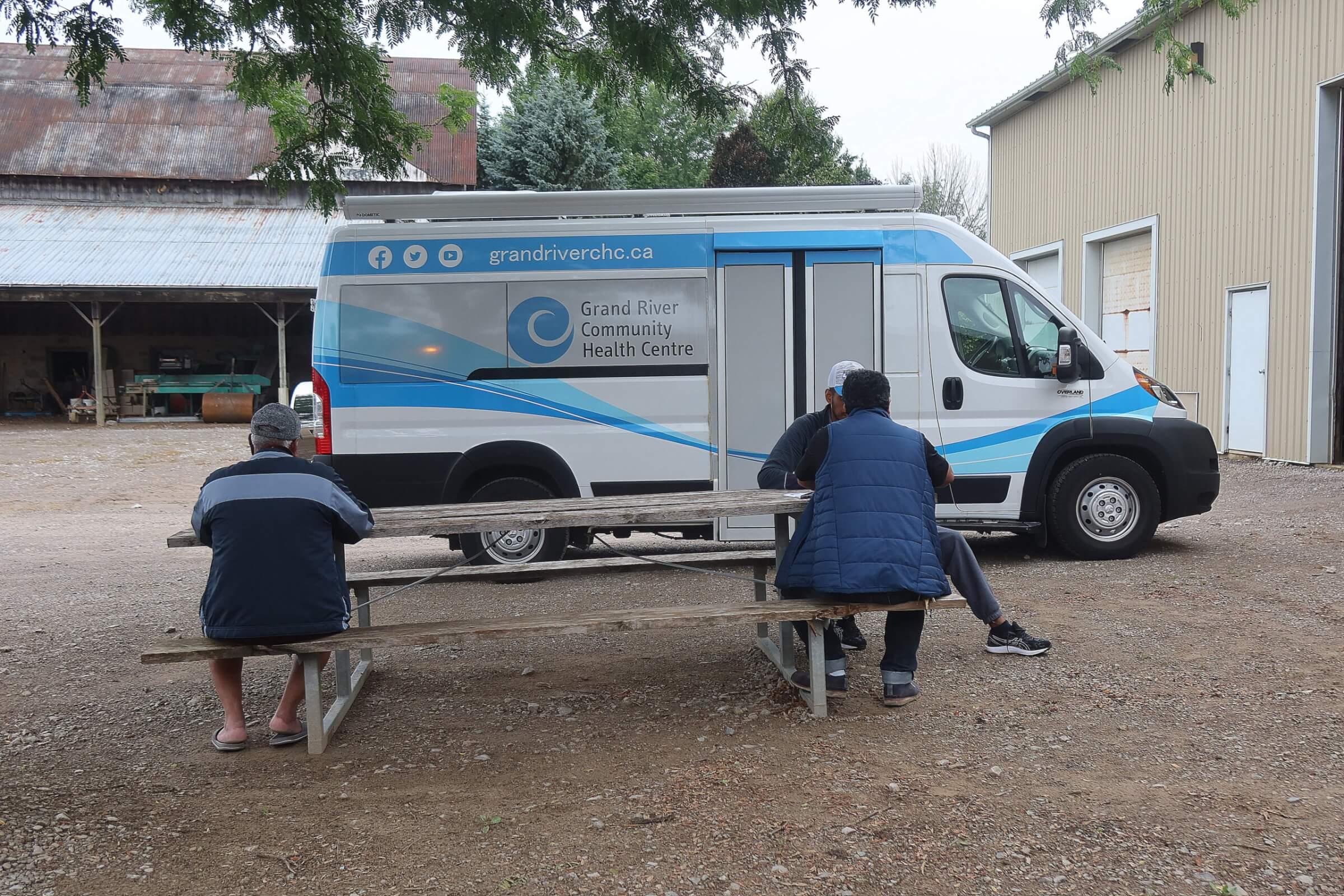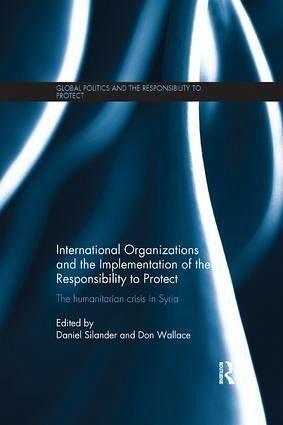In a significant development reflecting ongoing migration challenges, 145 undocumented Bangladeshi nationals have returned to their homeland after facing arduous circumstances in Libya. This repatriation effort underscores the complexities of irregular migration patterns and the plight of individuals seeking better opportunities abroad. The returnees, who had embarked on perilous journeys in hopes of finding work and stability, were facilitated by the government and various non-governmental organizations. Their experiences highlight the broader issues surrounding labor migration, human rights, and the need for comprehensive policies that address the humanitarian concerns associated with such movements. As these individuals reintegrate into Bangladeshi society, their stories serve as a poignant reminder of the risks associated with undocumented migration and the urgent need for safe, legal pathways for those in search of a brighter future.
Rescuing Hope: A Closer Look at the Experience of Undocumented Bangladeshi Nationals in Libya
In a recent development, a group of 145 undocumented Bangladeshi nationals has successfully returned home from Libya, shedding light on the harrowing journeys undertaken by many in pursuit of better opportunities. These individuals often find themselves trapped in a cycle of desperation and exploitation, driven by the allure of work abroad but facing severe challenges in foreign lands. Many have reported experiences marked by instability and abuse, living in constant fear of detention and deportation, which has fueled a growing concern regarding the safety and well-being of migrants in Libya.
As these returnees reintegrate into their communities, their stories highlight a troubling reality. The need for comprehensive support systems is crucial to help them rebuild their lives. Factors influencing their plight include:
Lack of legal protection: Undocumented migrants often lack access to essential services.
Exploitation by unscrupulous employers: Many face unfair treatment and long hours without compensation.
Trauma and mental health challenges: The psychological impact of their experiences significantly affects their reintegration.
Facilitating dialogue between governments and international organizations is imperative to create safer migration pathways and support for returning migrants. Initiatives focusing on awareness and skill development could prove beneficial for those looking to start anew.

Understanding the Journey: Circumstances Leading to the Return of Bangladeshi Workers
The plight of Bangladeshi workers in Libya sheds light on a complex web of circumstances that culminated in their return home. Many of these individuals initially left Bangladesh in search of better economic opportunities, driven by the desire to uplift their families from poverty. Unfortunately, upon arrival in Libya, they were confronted with an unstable political environment and widespread violence, which exponentially increased their vulnerability. Forced labor, exploitation by employers, and lack of legal protections became rampant issues, prompting many to seek ways to escape their precarious situation.
As conflict escalated in Libya, the need for evacuation became increasingly urgent. International organizations, alongside the Bangladeshi government, worked to facilitate the return of these undocumented workers. The decision was often fraught with emotional struggle, as many faced the hard choice between enduring the treacherous conditions or reuniting with their families back home. In recent operations, the efforts resulted in the return of 145 Bangladesh nationals, marking a significant step in addressing the ongoing crisis. Understanding these influencing factors is crucial in forming supportive policies for the future of Bangladeshi expatriates worldwide.

Challenges Faced: The Harrowing Reality of Undocumented Migration from Bangladesh
The journey of undocumented migrants fleeing Bangladesh often transforms into a perilous odyssey, driven by desperation and the hope for a better future. Many embark on this treacherous path due to myriad factors, including but not limited to:
Poverty: Rampant economic challenges compel individuals to seek jobs abroad.
Political Instability: Frequent shifts in governance and unrest create an uncertain environment.
Natural Disasters: Bangladesh’s vulnerability to floods and cyclones displaces countless families.
Upon arriving in destination countries like Libya, these migrants often encounter a harsh reality, marked by exploitation and danger. Many face dire circumstances such as:
Human Trafficking: Vulnerable migrants become easy targets for traffickers.
Harsh Living Conditions: Overcrowded and unsanitary shelters expose them to various health risks.
Legal Vulnerability: Without proper documentation, migrants live in constant fear of arrest and deportation.
Reintegration Strategies: Supporting Returnees for a Sustainable Future
The recent repatriation of 145 undocumented Bangladesh nationals from Libya highlights the pressing need for effective reintegration strategies that cater to the unique challenges faced by returnees. Upon their arrival, it is essential to ensure that these individuals receive proper support to facilitate their transition back into society. Tailored reintegration programs can include:
Psychosocial Support: Counseling services to address mental health issues and trauma experienced during their time abroad.
Vocational Training: Skill development workshops to enhance employability and encourage entrepreneurship.
Financial Assistance: Temporary financial support to help them establish a stable footing as they navigate job hunting.
Community Engagement: Initiatives that promote reintegration into local communities, fostering acceptance and belonging.
Furthermore, coordination between governmental and non-governmental organizations is crucial to streamline these efforts and maximize the impact. An organized approach can also include:
Strategy
Description
Expected Outcome
Database Creation
Develop a comprehensive database of returnees for targeted assistance.
Improved tracking of needs and progress.
Partnership Development
Collaborate with local businesses for job placements.
Higher employment rates among returnees.
Awareness Campaigns
Educate communities about the challenges faced by returnees.
Increased community support and acceptance.

Policy Recommendations: Enhancing Support Systems for Migrants and Their Families
To effectively address the challenges faced by migrants, it is crucial to establish robust support systems that cater to their unique needs and circumstances. Governments, in collaboration with non-governmental organizations (NGOs) and community groups, should focus on enhancing the following areas:
Legal Assistance: Providing access to legal guidance that helps migrants understand their rights and navigate the complexities of immigration law.
Psychosocial Support: Creating programs that offer mental health services and counseling to help returnees cope with the trauma of migration.
Reintegration Programs: Developing tailored initiatives that assist returnees in finding employment, starting businesses, and reintegrating into their communities.
Education and Training: Implementing vocational training programs to enhance skills and improve job prospects for returning migrants.
Moreover, it is essential to foster partnerships among stakeholders to ensure a comprehensive response to migration challenges. By building effective networks, the following initiatives can be implemented:
Stakeholder
Role
Collaboration Goals
Government Agencies
Policy development and enforcement
Streamline processes for returning migrants
NGOs
On-ground support and resources
Provide reintegration services
Community Organizations
Local engagement and awareness
Enhance social acceptance of returnees

International Responsibility: The Role of Global Stakeholders in Addressing Migration Issues
The return of 145 undocumented Bangladeshi nationals from Libya highlights a pressing humanitarian crisis and underscores the need for collaborative efforts among global stakeholders. Migration, particularly in the context of undocumented individuals, presents complex challenges that transcends national borders. Key players, including governments, international organizations, and civil society, must work together to create frameworks that not only address the immediate needs of returnees but also tackle the root causes of migration. These root causes often include poverty, political instability, and lack of economic opportunities in their home countries.
Moreover, the role of global stakeholders is increasingly vital in crafting sustainable migration policies. Initiatives could involve establishing dialogues and partnerships between origin and destination countries, focusing on the following aspects:
Safe and dignified returns: Ensuring that returning individuals are treated with care and provided with necessary support.
Integration programs: Facilitating re-entry through job placement and skill development.
International cooperation: Enforcing a coordinated approach to combat trafficking and protect vulnerable migrants.
Developing a unified strategy can ultimately help foster a more manageable migration system, enhancing safety and dignity for individuals seeking better livelihoods abroad. The solidarity of nations and organizations will be crucial in reshaping the narrative surrounding migration, transforming challenges into opportunities for growth and development.
Key Takeaways
the recent repatriation of 145 undocumented Bangladeshi nationals from Libya highlights the ongoing challenges faced by migrant workers and the need for continued support and advocacy for their rights and safe passage. These individuals, having endured arduous journeys and uncertain circumstances, are now returning home with mixed emotions—relief at returning to their homeland, alongside concerns for their futures. The Bangladeshi government’s engagement in facilitating their return underscores the importance of diplomatic efforts in safeguarding the welfare of citizens abroad. As Bangladesh moves forward, it remains crucial to address the systemic issues that push individuals to seek work in dangerous environments and to develop comprehensive strategies for protecting and empowering migrant workers. The situation serves as a poignant reminder of the complexities of migration and the resilience of those who navigate its treacherous paths.
The post 145 undocumented Bangladesh nationals return home from Libya – newagebd.net first appeared on Asia News.
Author : Asia-News
Publish date : 2025-02-13 07:08:25
Copyright for syndicated content belongs to the linked Source.
